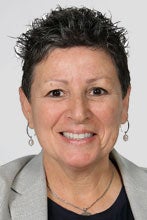Tourette Syndrome
Brock Senel has big dreams, as any 9-year-old kid should. He talks passionately of geography and politics, and his aspirations to one day become a geopoliticist. He’s taken up Taekwondo, enjoyed his first-ever funnel cake at the county fair and looks forward to returning to school in his adopted hometown of Istanbul, Turkey. Brock’s mother, Melinda Senel, looked on as her son continued to engage in conversation with confidence – a confidence Melinda is ecstatic and relieved to see again. When Brock was 4 years old, family members noticed he blinked too much, but chalked it up to his wearing his hair long. Then Melinda noticed Brock would continually flex his wrists back and forth. A visit to Brock’s primary care physician resulted in a diagnosis of a tic disorder, later specified as Tourette Syndrome (TS). A study found one of every 360 children between the ages of 6 and 17, or about 138,000 children, have been diagnosed with TS in the U.S. In addition, boys are three times more likely to have TS than girls. Melinda immediately took to the Internet to scout the top programs for tic disorders and discovered the Comprehensive Behavioral Intervention for Tics (CBIT) program at Children’s of Alabama. Doctors in Turkey encouraged Melinda to seek treatment via medication, but her gut told her a therapeutic approach was best. Plus, Alabama wasn’t unfamiliar territory. Melinda is a native of Athens, just west of Huntsville. “People kept asking me, ‘Can’t you find a place in Turkey?’ I could have, but this is the one he needs,” Melinda said of the CBIT program. “No one asks me that anymore.” “Brock is so much more secure now and that is what I wanted.” The CBIT program typically consists of eight weekly sessions with a focus on embedding tic strategies or “competing responses” into everyday life. For Brock, the program was condensed into two sessions per week for one month. The program can be tailored for each patient depending on geography and the severity of the tics, said Dr. Jan Rowe, CBIT program coordinator and occupational therapist. After Brock returns to Turkey, he and Rowe will keep in touch via virtual checkups. “Brock has done beautifully through the program,” Rowe said. “He’s responded quickly to being able to manage the tics.” It’s obvious Brock and Rowe share a special bond. He always greets her with a hug and occasionally quizzes her on capitals of foreign countries. “That’s a sign that he likes you,” Melinda says of Brock’s quizzing. “When I started searching for programs, I was looking for someone my son could form an emotional connection with, because if he could do that, he would be more susceptible to learning the strategies,” Melinda said. “There’s no way you can regret bringing your child here to be a part of this program. I’m glad we came here.”








